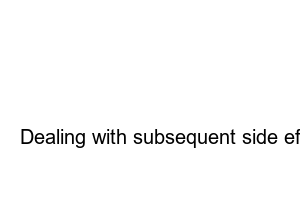위고비 부작용
Subsequent Side Effects: What You Need to Know
Dealing with side effects of medication can be a challenging experience, especially when subsequent side effects start to appear. **Subsequent side effects** are additional symptoms that arise after the initial side effects of a medication have already started to subside. These side effects can be unexpected and may vary in severity.
Understanding the *causes* of subsequent side effects is crucial in managing them effectively. One of the reasons why they occur is because the body is reacting to the medication in a way that was not anticipated. This can happen due to individual differences in how our bodies metabolize drugs, or because of interactions with other medications or health conditions.
The *importance* of recognizing subsequent side effects cannot be overstated. Ignoring these symptoms can lead to serious health complications and may even be life-threatening. It is essential to consult with your healthcare provider if you experience any new or worsening symptoms after starting a new medication.
**Symptoms** of subsequent side effects can range from mild to severe and may include nausea, dizziness, rash, shortness of breath, or changes in heart rate. It is important to pay attention to these symptoms and report them to your healthcare provider promptly.
*Managing* subsequent side effects requires a proactive approach. It is important to communicate openly with your healthcare provider about any symptoms you are experiencing. They may adjust your dosage, switch to a different medication, or provide additional support to help alleviate the side effects.
**Self-care** measures can also help in managing subsequent side effects. This may include staying hydrated, getting enough rest, eating a healthy diet, and avoiding triggers that worsen your symptoms. Engaging in stress-reducing activities such as yoga, meditation, or gentle exercise can also be beneficial.
In some cases, **support** from a mental health professional may be necessary to help you cope with the emotional impact of dealing with subsequent side effects. It is important to prioritize your mental well-being along with your physical health during this time.
In conclusion, subsequent side effects can be a challenging aspect of medication treatment. By understanding the causes, recognizing the symptoms, and actively managing the side effects, you can navigate this experience more effectively. Remember to always communicate openly with your healthcare provider and prioritize self-care to ensure your well-being.
**Summary**:
Dealing with subsequent side effects of medication can be challenging, but by understanding the causes, recognizing the symptoms, and actively managing the side effects, you can navigate this experience effectively with support from healthcare providers.

